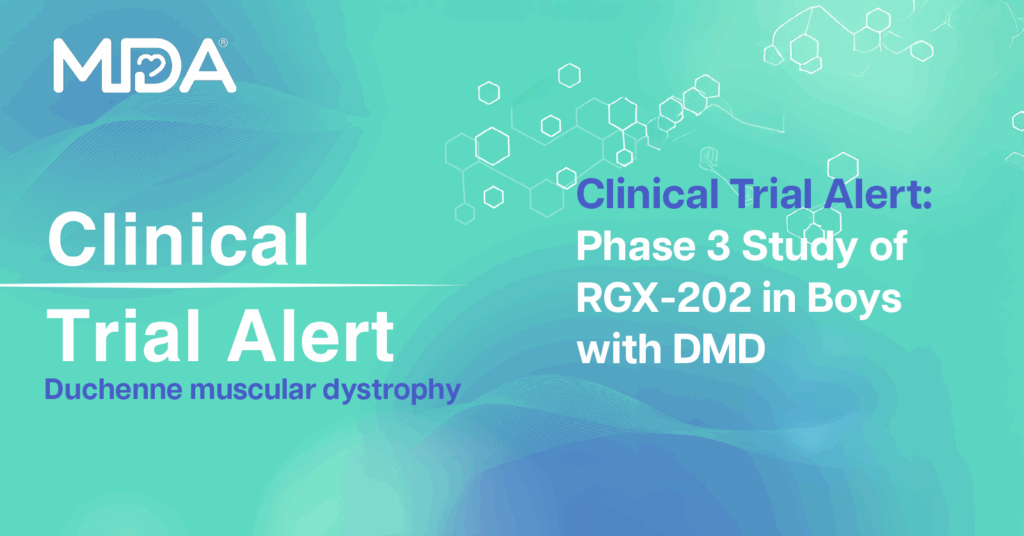
Can Women and Girls Have Duchenne Muscular Dystrophy?
By Larry Luxner | Thursday, September 7, 2023
Duchenne muscular dystrophy (DMD) is generally described as a rare neuromuscular disease in boys. Mindy Cameron, of Carmel, Indiana, is one of several women who never imagined DMD would affect her. But it has.
Nearly 20 years ago, doctors diagnosed Mindy’s son Christopher with DMD. Six years later, Mindy learned that she is a genetic carrier of DMD. Only in the last decade has she understood the connection between her carrier status and her own health.

Mindy Cameron, a longtime patient advocate, is working to have more women included in DMD clinical trials.
“I don’t think they associated any symptoms of concern with females until Parent Project Muscular Dystrophy (PPMD) started a carrier study about a decade ago,” says Mindy, a longtime patient advocate who consults for several companies working in rare disease and clinical research. “I was one of the first females enrolled, and thanks to that study, I found out that I actually did have a lot of fibrosis, or scarring, in my cardiac muscle, and I was able to get on medications.”
Mindy, whose other son does not have DMD, now looks forward to a normal prognosis because her heart issues are under control.
Tiffany Cook’s health issues are more serious. Tiffany, 51, is Director of Advocacy for InCommon, a division of Syneos Health, in Dallas. Her 23-year-old son, Wil, was diagnosed with DMD in 2007. Tiffany was confirmed as a carrier one year later.
“The genetics of this is just mind-boggling,” Tiffany says. “Over time, I started digging a little more. I had some heart issues as a younger teen, like heart palpitations and shortness of breath, but nothing was ever found. Several years after Wil’s diagnosis, I started questioning what was going on.”
Her symptoms worsened in 2019, and she began experiencing weakness and fatigue, making it difficult to climb stairs, open containers, or wash her hair. A series of MRIs revealed nothing until she saw Pradeep Mammen, MD, coordinator of the Paul D. Wellstone Muscular Dystrophy Center at the University of Texas-Southwestern in Dallas.
Dr. Pradeep assessed Tiffany as he would someone with DMD, and he developed a treatment plan to manage her cardiomyopathy and heart failure that mirrors her son’s treatment plan.
“My medication regimen is maintaining my status, but my strength continues to weaken,” Tiffany says. “I often think about if I will need to use a wheelchair someday, too.”
Know if you’re a carrier
Sharon Hesterlee, PhD, MDA’s chief research officer, says no standard-of-care exists for female DMD carriers.
“This is an issue that deserves more study,” she says. “We don’t know the extent of how DMD can affect females. Only in the last 10 or 15 years has there been a real awareness that this is an actual problem.”
DMD is an X-linked disease. This means the disease-causing gene mutation, or variant, is on the X chromosome. Females have two X chromosomes, and males have one X and one Y chromosome. About two-thirds of DMD cases are passed from mother to son on the X chromosome. The remainder are de novo (not inherited) mutations.
Dr. Mammen urges women who have sons with DMD to get tested to see if they carry the DMD gene as well. If they are carriers, they can receive medications to delay or prevent heart disease — but it’s important to start this treatment early.
Carriers create community and advocate
“As more and more DMD carriers have gotten connected through social media, patient conferences, and support groups, we have started to connect the dots a little bit on carrier issues,” Mindy says. “As it turns out, a lot of females do have muscle weakness. Sometimes it starts manifesting later in life, like with me, but we do know now that young females can also be pretty widely affected by this disorder.”
Mindy, who’s also a board director of Indiana’s Muscular Dystrophy Family Foundation, says there’s a big push to include women in more trial protocols.
“That’s actually my personal mission: to see how some of these amazing, promising drugs that we have in our therapy pipeline can be applied to women,” she says.
Tiffany, who previously worked for the nonprofit CureDuchenne, was among 25 women who took part in a carrier study at the University of Florida. As part of that study, MRIs were taken of the heart, calf, shoulder, and other muscles.
“They found that I have muscle wasting in the hips, and not just that,” she says. “I have fibrosis or scarring in my heart, just like a boy with DMD. My heart looks like my son’s heart.”
DMD genetic testing and screening

Tiffany Cook sees attitudes changing about DMD in girls and women.
In 2010, Tiffany ran a marathon for a PPMD fundraiser, but today she can walk only half a mile before feeling tired.
“There’s a lot of guilt being a carrier. A lot of moms don’t get tested right away because they don’t want to know,” she says. “But I wanted to know.”
Despite the recommendations of DMD experts like Dr. Mammen, getting tested to see if you’re a DMD carrier may not be as simple as it seems — especially if your insurance company won’t cover it.
“For some women, it remains difficult,” Mindy says. “Some advocacy groups have started programs where females can get genetically tested. If you are symptomatic, you can usually get genetic testing done through your healthcare provider. But historically, DMD has been considered a male disease in which women aren’t affected. It’s taken a lot of research studies to change that conversation.”
“Now more and more doctors are recognizing that we can indeed have symptoms stemming from our carrier status,” Mindy adds. “It’s been an uphill battle, but we’re finally starting to turn the corner.”
Next Steps and Useful Resources
- Parent Project Muscular Dystrophy has a program called Decode Duchenne that provides free testing for girls and women who have a male relative with Duchenne muscular dystrophy (DMD) or Becker muscular dystrophy (BMD) to find out if they are carriers.
- For more information about finding genetic testing, including available no-cost programs, contact MDA’s Resource Center at 833-ASK-MDA1 or ResourceCenter@mdausa.org.
- Browse MDA’s Genetics and Genetic Testing educational materials to learn more about how neuromuscular diseases occur and are diagnosed.
- Stay up-to-date on Quest content! Subscribe to Quest Magazine and Newsletter.
TAGS: Featured Content, Genetic Testing, Healthcare, Research, Young Adults
TYPE: Blog Post
Disclaimer: No content on this site should ever be used as a substitute for direct medical advice from your doctor or other qualified clinician.




